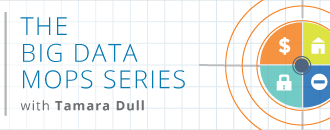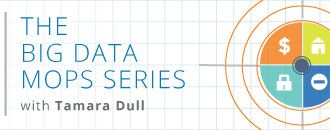
Last month, I ran an informal poll and asked the question: Which statement most closely represents your response to: “Is privacy dead?” Here are the options I offered up:

Last month, I ran an informal poll and asked the question: Which statement most closely represents your response to: “Is privacy dead?” Here are the options I offered up:
- Who cares if it’s dead or not? I have nothing to hide.
- Absolutely! It’s been dead for decades – thanks to “Big Brother” and government surveillance.
- Yes, it’s dead because of today’s technologies (big data, social, mobile, cloud, etc.).
- It’s not dead yet, but it probably will be in the next few years.
- No, it’s not dead; it’s just more complex and requires more cooperation between entities (individuals, organizations, governments, etc.).
- I’m not sure and I don’t really care.
How would you have responded? Which response do you think was the most popular? I’ll share the poll results with you at the end of this post.
About this ongoing debate. Awhile back, I was asked to participate in a webcast panel discussion (note that it wasn’t about privacy), and at the end of the prep call, one of the panelists said, “Privacy is dead! And it’s been dead since the 1960’s!” This panelist suggested to the moderator that the panel discuss this issue if we had time during the live webcast. Well, we didn’t have time. But I was ready.
I will agree that the privacy discussion has been going on for a long time. Here’s a few of my favorite “privacy is dead” quotes from key technology leaders to demonstrate my point:
“You have zero privacy anyway. Get over it.” –Scott McNealy, Sun Microsystems, 15 years ago
“If you have something that you don’t want anyone to know, maybe you shouldn’t do it in the first place.” –Eric Schmidt, Google, 10 years ago
“People have really gotten comfortable not only sharing more information and different kinds, but more openly and with more people. That social norm is just something that has evolved over time.” –Mark Zuckerberg, Facebook, 5 years ago
And just recently, Tim Cook of Apple took the opposite stance, while finger-wagging at both Google and Facebook, and said: “We believe that people have a fundamental right to privacy. The American people demand it, the constitution demands it, morality demands it.”
Game on. Still.
About recent surveys. I’m pleased to see some key academic and industry players weighing in on this big data privacy discussion. What always makes it more “interesting” is when they don’t agree. Here’s a few recent examples:
- Customer Data: Designing for Transparency and Trust. This Harvard Business Review report by frog executives offers up this thesis: “Companies that are transparent about the information they gather, give customers control of their personal data, and offer fair value in return for it will be trusted and will earn ongoing and even expanded access.” It sounds like a win-win, but…
- The Tradeoff Fallacy: How Marketers Are Misrepresenting American Consumers and Opening Them Up to Exploitation (PDF). In the other corner, this recent University of Pennsylvania report reveals that a majority of Americans are resigned to giving up their data and believe it is futile to manage what companies learn about them. They don’t want to lose control over their information, but more than half believe this loss has already happened.
- Consumer Perceptions of Privacy in the Internet of Things: What Brands Can Learn from a Concerned Citizenry. And hot off the press is a report from the Altimeter Group, written by industry analysts Jessica Groopman and Susan Etlinger. It focuses on consumers’ attitudes about how companies are using and sharing the data from their connected devices. 78% of those surveyed are highly concerned about companies selling their data to third parties.
As these reports highlight, in today’s data economy, we’re sharing a ton of personal information about ourselves online. And this privacy discussion is only going to get bigger, especially as companies and government agencies get better at collecting, analyzing, and sometimes selling the data we’re freely sharing with them. Trust is at the heart of the privacy issue and is the glue that will keep the data ecosystem together.
And my “survey” says. As promised, here are the results to my recent “Is privacy dead?” poll:
- 39% – No, it’s not dead; it’s just more complex and requires more cooperation between entities (individuals, organizations, governments, etc.).
- 29% – Yes, it’s dead because of today’s technologies (big data, social, mobile, cloud, etc.).
- 14% – It’s not dead yet, but it probably will be in the next few years.
- 11% – Absolutely! It’s been dead for decades – thanks to “Big Brother” and government surveillance.
- 5% – Who cares if it’s dead or not? I have nothing to hide.
- 1% – I’m not sure and I don’t really care.
Or in other words: “No, it isn’t!” “Yes, it is!” “Maybe not now, but just you wait!” “Are you kidding me? Yes!” “Bring it on!” “WTF?!” Still.
As you can see, we’re still divided on this issue—just like the technology leaders quoted earlier. But regardless of where you stand, most of us will agree that data privacy: (1) is important—even if we can’t grasp it all yet; (2) it’s evolving—as our data, devices, and networks continue to proliferate; and (3) it’s complex—and goes beyond the back-in-the-day discussion of data access and control.
What’s my response? I’ll keep it brief:
- I’m sorry, Scott McNealy, but privacy is not dead and we shouldn’t get over it.
- To those in the 1%–I’m not sure and I don’t really care—bucket, please educate yourselves and understand the risks. Ignorance and apathy are not sustainable positions in this big data privacy game.
- And finally, I firmly believe that as more consumers and everyday citizens continue to understand what’s at stake with their personal data, we will see changes—in government and in businesses. It’s already happening.
A final note. If you’re a marketer and are interested in learning more about how personal privacy is being impacted in our big data world, I invite you to download this e-book I wrote: What Marketers Need to Know about Big Data Privacy: A Five-Step Guide. It busts a few privacy myths and sets the record straight on data anonymization. Check it out.










